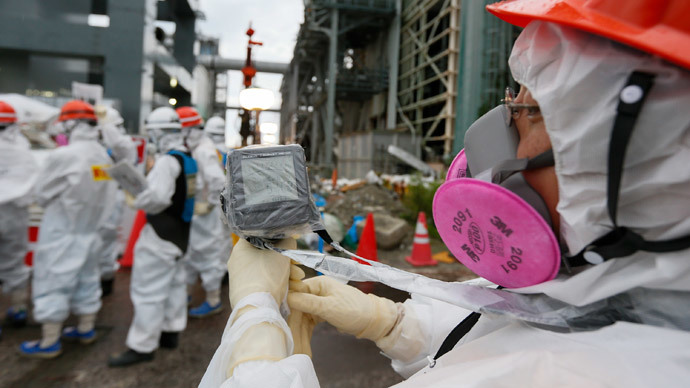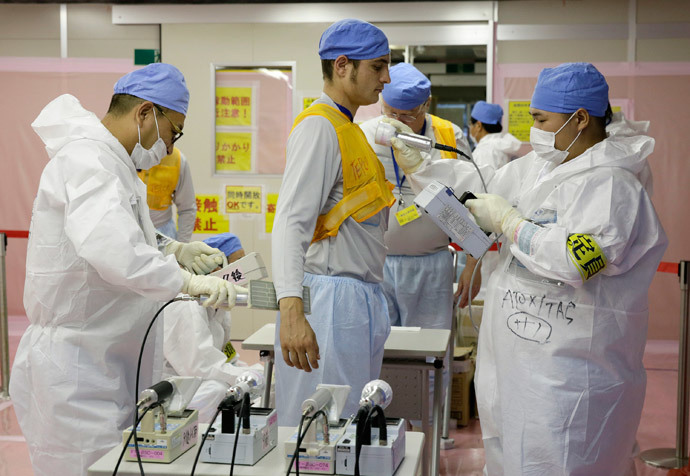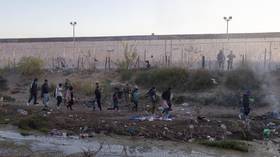‘TEPCO covered up the truth about Fukushima disaster’

TEPCO has hidden the truth about the Fukushima nuclear disaster and now drip feeds information so the public can get ready for the next piece of bad news, James Corbett, editor, The Corbett report, told RT’s In the Now show.
Journalist Jun Hori has quit NHK, the Japanese state broadcaster saying that his network restricted what he could say about the Fukushima nuclear disaster, and moved more slowly than others to report how far the radiation was spreading.
RT:Has TEPCO (Tokyo Electric Power Company) gotten away with hiding information from the public?
James Corbett: TEPCO has lied obfuscated and covered up the truth about what they knew about, or know about what is going on at sites since day one. And of course this goes back to the very beginning of the disaster when they knew within 72 hours that three of the reactors at the Fukushima No.1 plant site were in full melt down. In fact that they did not reveal to the public for almost three months after that event took place. And from there it only continues. We have cover-ups about the amount of radiation that has been released. TEPCO had to revise its original estimate up 250%. We have had cover up of the fact that there was and continues to be 300 tons of radioactive water flooding through the site. That wasn’t really revealed to the public until the summer of 2013, two years after the event took place. Cover-up after cover-up continuously being revealed and only very much later after the fact. I think TEPCO certainly has gotten away with an awful lot. Their practice seems to be, I am not sure if this is a coordinated strategy, but it certainly seems to be that it reveals information in dribs and drabs over long periods of time so that the public has time to be acclimatized to the last piece of bad news before the next one hits them.

RT:How tight is TEPCO with the Japanese government?
JC: Technically TEPCO has now been nationalized with the Japanese government being the largest stakeholder. So there is a direct Japanese government stake in the company. That is obviously a situation which creates a type of direct relationship between the company and the government in which obviously the interest of the government and interest of the company are directly tied financially. It creates a very worrying situation and the government has attempted to reform the nuclear regulatory agency here in Japan and attempted to set up a separate division of TEPCO for taking care of decontamination of the sites specifically. But arm's length institutions or agencies like that are supposed to have oversight over this process aren’t really anything more than just a buffer between what is essentially the same thing now: the Japanese government/ TEPCO which are really wedded at the hip.
RT:Are you suggesting that the revelations from this disaster and the implications have not really caused tougher control over the industry?
JC: They certainly haven’t it at this point. In fact, what we have seen is the shutdown of all of the other reactors in the country for maintenance and none of those reactors have been turned on as of now. What we are seeing right now is that the struggle that is taking place between protesters and the Japanese government over the restart of those reactors. What has taken place since Fukushima has been the renewal of guidelines regarding safety measures for some of these plants. But there is a lot of concern that these measures that are now being used as the guidelines for whether or not a plant is within the safe operating limits – [are] equally as flimsy as those regulations that allowed the Fukushima plant to operate in the incredibly precarious position that it was operating in. There is still a lot of concern over the nuclear regulatory agency here and the fact that a lot of the members have taken outright bribes of various sorts from the nuclear industry. It seems that the long standing ties between the nuclear industry and the Japanese government here in Japan hasn’t really been shaken and they continue to have ... influence over the Japanese government’s policy on nuclear energy.
The statements, views and opinions expressed in this column are solely those of the author and do not necessarily represent those of RT.
The statements, views and opinions expressed in this column are solely those of the author and do not necessarily represent those of RT.












